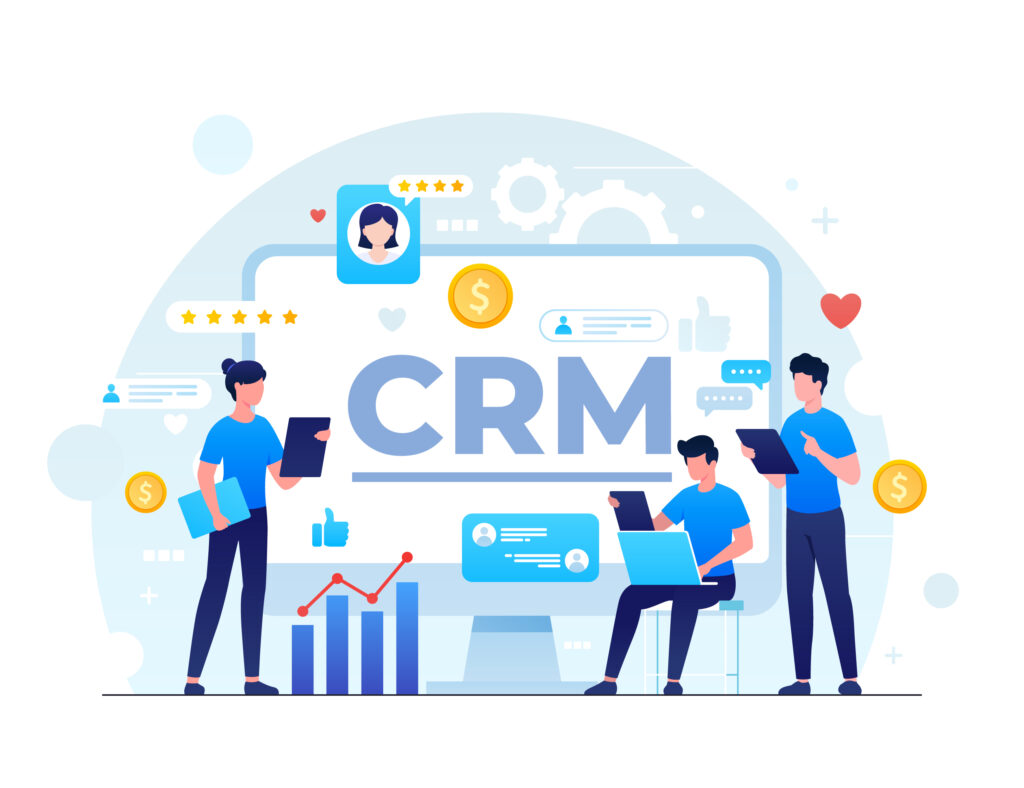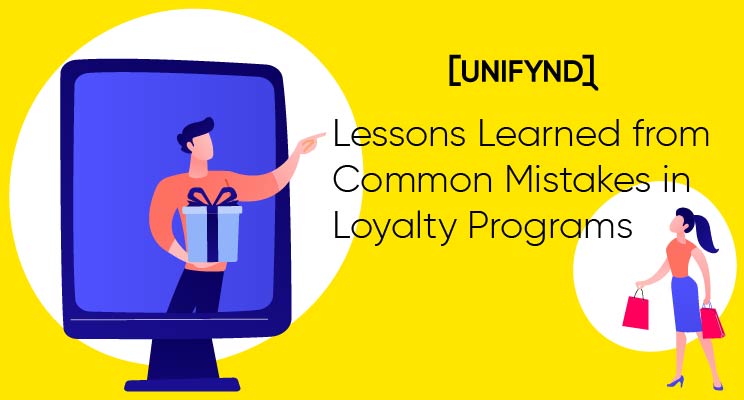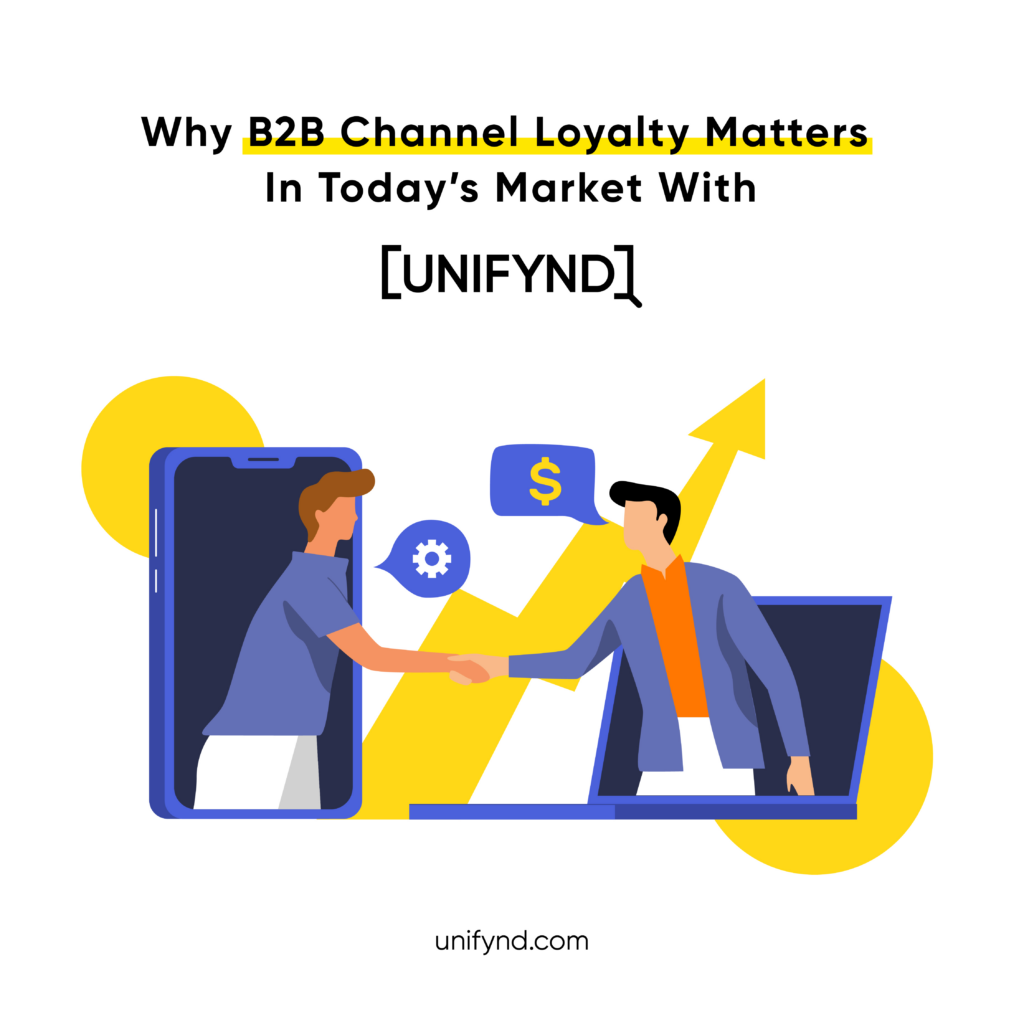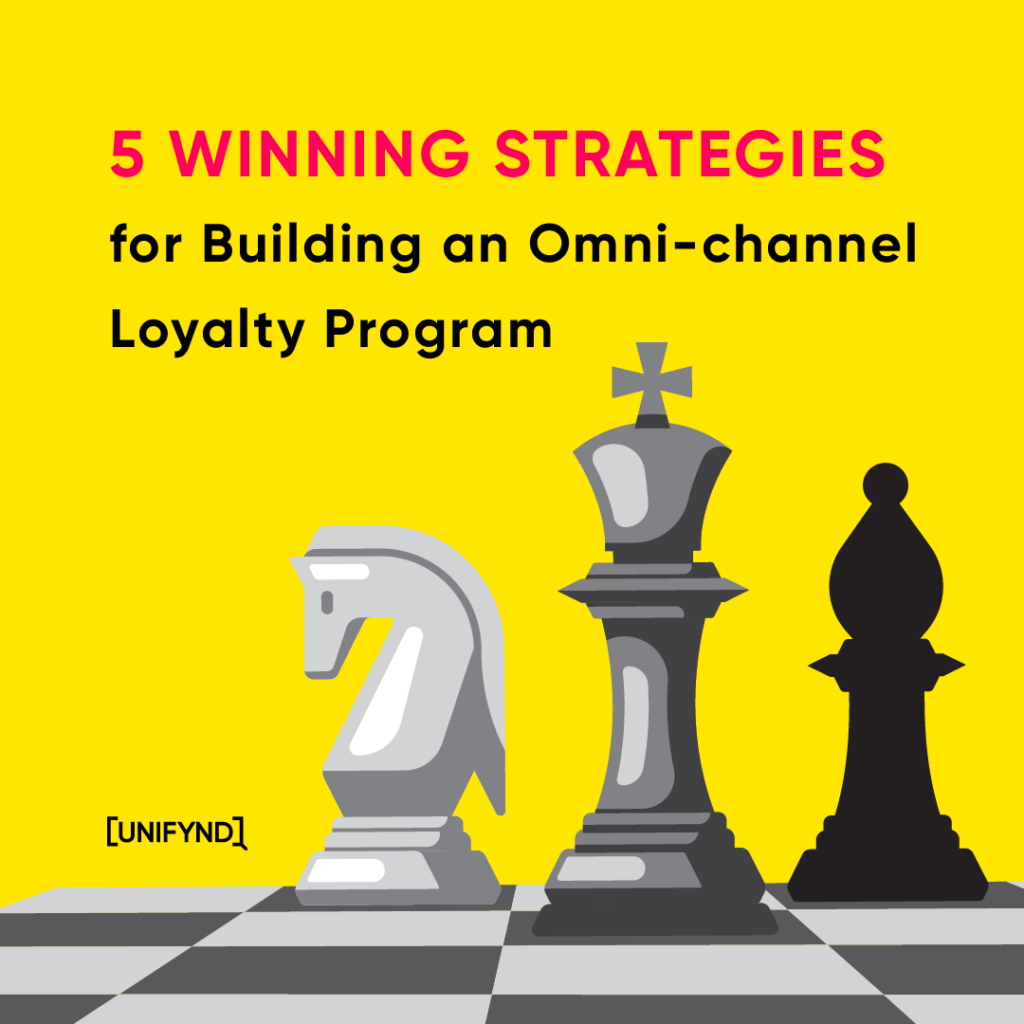CRM is an integration of three things i.e. people, processes, and technology, which seeks to understand the customers of and by the company’s customers. Its ultimate aim is to improve business relationships, and a CRM system makes this possible by enabling companies to stay connected with customers, streamline processes, and improve profitability.
When people talk about CRM, they are usually referring to a CRM platform or system, which serves as a powerful tool for contact management, sales management, productivity, and more.
By using CRM software, organizations can focus on individual relationships with people, such as customers, service users, colleagues, or suppliers, throughout their entire lifecycle. This includes finding new customers, winning their business, and providing ongoing support and additional services throughout the relationship.
With a reliable CRM solution, the sales and marketing team can easily track and follow a customer’s interaction journey with your business. This enhances the customer journey and experience by refining each customer touchpoint, resulting in happier customers and increased business revenue.
Importance of loyalty programs in modern business
Loyalty programs have evolved over the years. The technological advancements give it an added opportunity to connect with your customers and retain them for the long term.
Loyalty programs are indispensable tools for building strong and lasting customer relationships and driving sustainable growth in modern business.
Loyalty programs offer a strategic means to engage, retain, and delight customers beyond simple transactions.
In crowded marketplaces, loyalty programs differentiate brands by recognizing and rewarding customer loyalty.
These programs create a sense of belonging and value, increasing customer retention and facilitating valuable data collection, market insights, and word-of-mouth promotion.
Ultimately, loyalty programs demonstrate a brand’s commitment to its customers and shape the dynamics of contemporary commerce with confidence.
“The CRM aspect is highly dynamic, and businesses have to adopt a proactive approach so that the company can be able to face the competition. Every business organization should try to maintain long-term relationships with customers so that they can understand the changing and increasing expectations of the customer, and businesses can take action accordingly. By doing so, the business can earn lifelong customer loyalty.”
Understanding CRM and Loyalty Programs
At the heart of modern customer-centric strategies lie Customer Relationship Management (CRM) and loyalty programs. These two interconnected concepts synergize to cultivate meaningful connections with customers, fostering loyalty through personalized experiences and data-driven insights. Here’s how CRM is beneficial for loyalty programs:
Data warehouse technology is useful for collecting all transaction information, merging it with CRM products, and providing key performance indicators.
Opportunity management helps firms manage unpredictable demand and growth by implementing good forecasting models by integrating sales history with sales projections.
CRM systems keep track of and measure marketing campaigns conducted on various networks.
CRM systems keep track of customer analysis by recording clicks, searches, and purchases made by employees.
The Synergy between CRM and Loyalty Programs
Utilizing CRM Data to Personalize Loyalty Experiences:
In the realm of modern business, harnessing the power of CRM data to personalize loyalty experiences has emerged as a strategic imperative. This multifaceted approach not only enhances customer satisfaction but also contributes to brand differentiation and long-term growth. Two key components define this strategy:
Collecting and Analyzing Customer Data:
At the heart of personalized loyalty experiences lies the comprehensive collection and analysis of customer data.
Data Collection and Analysis: Personalized loyalty experiences are built on thorough collection and analysis of customer data.
Central Role of CRM Systems: Customer Relationship Management (CRM) systems act as essential repositories for data gathered from various touchpoints.
Diverse Data Sources: Data is sourced from purchases, website interactions, social media engagements, and customer service interactions.
Comprehensive Insights: This data creates a mosaic that reveals insights into consumer behaviors, preferences, demographics, and past interactions.
Advanced Analytics Tools: Utilizing advanced analytics tools, businesses can interpret patterns and trends in the data.
Tailoring Rewards and Offers Based on Preferences:
Informed Loyalty Programs: Insights derived from data analysis empower businesses to create personalized loyalty programs.
Shift from Generic to Targeted Rewards: Traditional generic discounts and rewards are giving way to precise and personalized incentives.
Understanding Customer Preferences: By comprehending individual customer preferences, companies can design rewards that hold personal significance.
Emotionally Engaging Rewards: Personalized rewards are not just relevant, but also emotionally appealing to customers.
B. Enhancing Customer Engagement through CRM:
Customer engagement stands as a linchpin in the success of loyalty programs. CRM platforms provide an arsenal of tools to bolster engagement and foster genuine connections with customers. This facet is bolstered by the following strategies:
Targeted Communication and Marketing:
Segmented Customer Lists: CRM systems facilitate the segmentation of customers based on parameters like purchase history and preferences.
Tailored Marketing Campaigns: Segmentation allows businesses to customize marketing campaigns for specific audience groups.
Right Message, Right Time: Customized emails, SMS notifications, and app updates ensure messages are delivered to the right audience at optimal times.
Effective Conduits: Personalized communication channels deliver exclusive offers, product recommendations, and relevant content.
Feedback Collection and Implementation:
Seamless Feedback Collection: CRM systems enable easy collection of feedback via surveys, reviews, and social media interactions.
Fostering Co-Creation: Two-way communication through feedback encourages a sense of co-creation between businesses and customers.
Insights into Action: Companies not only gather insights but also implement changes based on customer suggestions.
Proactive Approach: Implementing customer suggestions demonstrates attentiveness, enhancing customer loyalty.
C. Measuring and Tracking Loyalty Program Effectiveness with CRM:
The integration of CRM systems with loyalty programs provides a robust framework for gauging the success and impact of these initiatives. This aspect is underpinned by the following practices:
Monitoring Customer Interactions and Behaviors:
Real-time Tracking: CRM platforms enable continuous tracking of customer interactions for a comprehensive view of engagement levels.
Comprehensive Touchpoint Recording: Every interaction, from purchases to website visits, is recorded to understand loyalty program engagement.
Data-Driven Insights: The data-rich environment helps identify trends and drop-offs, allowing for timely interventions.
Actionable Data: Insights from interactions aid in making informed decisions to improve loyalty programs.
Analyzing Metrics for Program Optimization:
Leveraging CRM Data: Businesses use CRM data to analyze key performance indicators (KPIs) for loyalty programs.
Evaluating Program Efficacy: Metrics like customer retention rates, purchase frequency, and average transaction value provide insights into program effectiveness.
Identifying Improvement Areas: Thorough metric analysis reveals areas needing enhancement.
Strategic Refinement: Businesses fine-tune loyalty strategies based on metric analysis to achieve maximum impact.
Overcome these Challenges with Unifynd
Acquisition Challenges
To establish a loyalty program, the first step is to gain and retain customers on your brand’s website or application. Our team can assist you in achieving this by addressing the initial task of customer acquisition and conversion into lifelong customers.
Landing Pages:
We offer gamified landing pages that are customized to your brand’s preferences. Customers can interact with your brand by playing games such as wheel of fortune, scratch card, image puzzle or polls to earn extra points/discounts which can be redeemed in the future. This gamification strategy encourages customers to engage further with your brand and fosters repeat visits.
Retention Challenges
The next step in loyalty programs is to focus on retaining customers. Once you have acquired a customer, it is important to keep them engaged to encourage them to return to your website. To retain your customers, we use
Social Media Marketing:
One of the most effective ways to bring customers back is by regularly inviting them to return. Brands can communicate with their customers to create brand awareness. With our CRM, you can send communications with a landing page that directs customers to engage with the brand, such as by playing games or learning about new products. By segmenting your customers and sending personalized communication, you can build brand advocacy and strengthen your relationship with them.
Engagement Challenges
Increasing customer lifetime value requires constant engagement with customers, understanding their needs, and tracking their behaviors to provide better experiences. Our CRM tool allows you to engage with your customers through:
User Feedback
It’s crucial to know how your consumers feel about your product and overall brand experience. Our feedback surveys are gamified and can be easily shared through emails, SMS, and WhatsApp.
Coupon Management
Our CRM tool allows you to easily create and share coupons with your customers. By utilizing personalized coupons based on their past purchases, you can encourage your customers to make additional purchases and increase customer loyalty.
Conclusion
In the intricate world of modern business, the symbiotic relationship between CRM and loyalty programs has ushered in a new era of personalized engagement. This harmony has reshaped how businesses curate experiences and incentives, fostering stronger customer bonds.
As we wrap up, it’s vital to underscore the centrality of customer-centric strategies. The integration of CRM and loyalty programs transcend data and technology, embodying empathy, responsiveness, and attentiveness to customer needs.
In conclusion, the realm of CRM-driven loyalty continues to evolve. Amid technological strides and shifting customer dynamics, the journey to create tailored experiences and cultivate lasting loyalty is perpetual. Embracing innovation, upholding ethical standards, and adapting to customer preferences stand as guiding principles.
For those seeking to navigate this landscape effectively, we invite you to explore Unifynd. With our cutting-edge solutions, businesses can seamlessly merge CRM insights with customer-centric approaches, unlocking the full potential of loyalty programs in today’s ever-changing business landscape.
Reach us at growth@unifynd.com and begin your loyalty journey.







